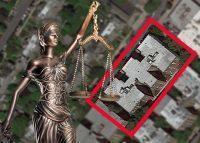William Koeppel on Thursday scored a victory in a 12-year, class-action lawsuit brought by his tenants in Turtle Bay. It is still unclear whether he will ultimately be able to hold onto the rental property, but some real estate attorneys called the ruling significant for landlords.
The state’s highest court ruled that rent overcharges at 350 East 52nd Street should be calculated on an apartment-by-apartment basis, and be based on whatever the rent was on October 14, 2007 — as long as records exist of the rent at the time.
Lower courts had ruled that, because of fraud allegations against the landlord, the rent overcharges in the 2011 lawsuit should be calculated using a “default formula,” which relies on the lowest stabilized rent recorded for comparable apartments, rather than a four-year lookback.
The distinction might seem wonky, but the difference is dollars owed to tenants can be substantial.
Koeppel’s attorney, Jeffrey Turkel, of Rosenberg & Estis, said the decision affirms a previous court ruling that rent owed to tenants in overcharge cases predating the 2019 rent law must be calculated based on a four-year lookback unless the landlord schemed to illegally deregulate units.
The New York Court of Appeals has held that landlords are not allowed to deregulate units while receiving the J-51 property tax break, but that act by itself “generally” does not constitute willful fraud.
Turkel also said the decision showed that courts cannot consider conduct that takes place after the base rent date — in this case Oct. 14, 2007 — when determining if fraud occurred. This read on the decision is a significant win for landlords, who have been watching the case closely.
The Rent Stabilization Association and the Community Housing Improvement Program had filed an amicus brief in the case, calling for a reversal of the lower court’s decision and a clarification on how rent overcharges should be calculated in certain cases.
“This victory will help rectify the indemnity owed to me on the building including legal fees, lost rents, and the overall devaluation of the property,” Koeppel said in a statement. “The court’s groundbreaking ruling will reset the rental industry and allow landlords to collect a fair rent and invest those funds into building upgrades and services.”
Nativ Winiarsky, a partner at Kucker Marino Winiarsky & Bittens, called the ruling a “game changer” for potentially hundreds of cases in the city. An attorney for the tenants, conversely, said he does not believe the decision answers the questions about when and how fraud allegations come into play.
For Koeppel, his win is tempered by the fact that he is still facing foreclosure and is fighting to keep control of the property through a ground lease.
Koeppel filed for bankruptcy protection in August 2022, citing the foreclosure proceedings and the looming payout to tenants. He allegedly owes his lender $45 million, stemming from a $32.1 million mortgage.
Koeppel blames his mother, Roberta Koeppel, for the rent overcharges at the East 52nd Street property and has argued that she should be on the hook for any payments to tenants. He and his mother are in a long-standing feud; in its latest chapter, he is suing to remove her and his sister as trustees overseeing a portfolio of 13 buildings.
Representatives for Koeppel argue that Thursday’s decision should play in the landlord’s favor in the bankruptcy proceedings. But the property’s ground lessor, 939 First Avenue LLC, an entity tied to Solil Management, argues in bankruptcy filings that Koeppel is in violation of the ground lease terms on multiple fronts, including the overcharge case and allowing a “prostitution ring” to operate out of the building.
Himmelstein McConnell Gribben & Joseph’s Ronald Languedoc, the tenants’ attorney, said he was heartened that the New York Court of Appeals decision was fairly narrow. Contrary to Turkel’s view, he said the high court did not definitively weigh in on whether conduct after the base-rent date could be considered when determining if a deregulation scheme occurred.
He also pointed to the court’s assertion that willful fraud is “generally” not applicable in J-51 overcharge cases. He sees wiggle room in the phrasing.
“They used the term generally,” he said, “and I think that is an important word.”
The case was remanded to state Supreme Court, but it may ultimately be up to the bankruptcy court to work out the overcharge amounts.
Read more



